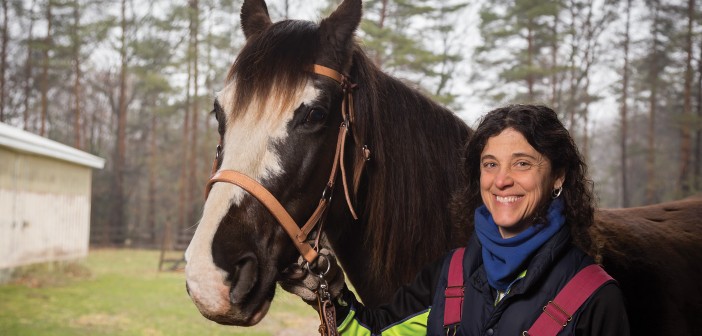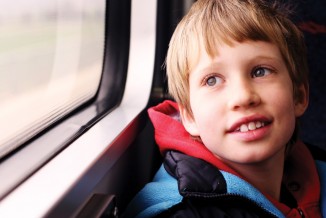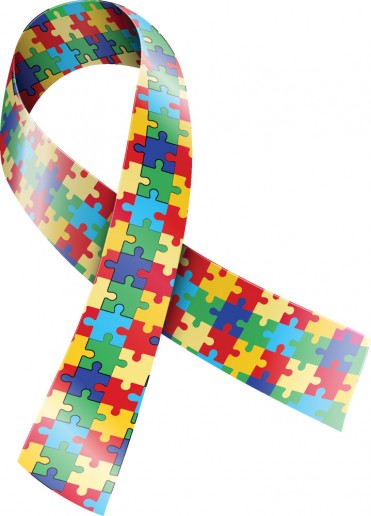Did you know that 60,000 individuals with autism live in Michigan? Did you know that there are 1,000 school-aged children in Genesee County with autism? What is Autism Spectrum Disorder (ASD)? “ASD is a complex developmental disability that typically appears during the first three years of life and is the result of a neurological disorder that affects normal brain function,” explains Anne Haley, Director of the Autism Support & Resource Center in Burton. Typically, both children and adults with ASD show difficulties in verbal and non-verbal communication, social interactions, and leisure or play activities. Autism affects each individual differently and at varying degrees.
The ASRC was formed in 2002 to address the need for support to families in this area whose lives are affected by autism. “Our mission is to enhance the quality of life and empower families and individuals with autism through all phases of life,” Anne says. The organization offers monthly support groups as well as social activities for children, teens and adults who have autism. “The socials are nice way to connect with others,” Anne adds. They also offer recreational activities including a basketball program, which is taught by a parent of an autistic child and supported by Baker College students who are studying occupational therapy. In addition, ASRC offers training and education and holds seminars to help parents’ caregivers and educators to help better understand autism spectrum disorders, Anne explains.
Sensory problems are common for autistic children. ASRC has a Sensory Room that is very beneficial, according to the director. The multi-sensory room is aimed at providing individuals with the opportunity to stimulate, develop or balance their sensory system. “Some autistic individuals are very sensitive to sights, smells, tastes,” Anne says. “The Sensory Room helps them develop good coping skills.”
April is National Autism Awareness Month and the ASRC partners with Baker College to help raise community awareness of ASD. In the past, they have hosted candlelight vigils; this year, they are taking a more positive approach. “We don’t want the community to mourn those who have autism; we want them to be celebrated,” says the director.
ASRC enjoys its partnership with Camp Copneconic – a summer camp for autistic children – POWER Camp (Peer Outreach With Extraordinary Results). POWER Camp was developed to help expand the capabilities, confidence and social experiences of autistic youth. The camp is in its fifth year and is held twice in the summer.
Equine Therapy has proven to be beneficial to autistic individuals. Kim Cardeccia is a Professional Counselor at Hidden Promise, an equestrian facility in Fenton. She is currently working with three clients on the autism Spectrum, but her counseling is not exclusive to autism. Equine Therapy helps people learn how to communicate empathetically and compassionately with horses. “The horse offers a different method for people to develop skills and an ability to connect with other people,” Kim says.
Since horses are “prey” animals, they are kept in herds at Hidden Promise – as a horse is always looking to see who the “leader” is. “If you take the horse away from herd, they see ‘us’ as the leaders; and we capitalize on that in the therapy,” Kim explains. Equine Therapy helps people in the autism Spectrum gain trust and confidence. The therapy starts with the client getting to know the horse. The next step is to focus on staying in the moment. They then work on connecting with the horse and forming a bond – and getting the horse to follow the client as they walk.
Kim works one-on-one with her autistic clients. “It is so much more effective,” she says. Another useful therapy type is “hippo therapy” – a treatment that utilizes equine movement. She said a horse’s gait is very similar to that of a human, and when riding a horse, something very healing happens when the spinal fluid moves. Kim explains, “It is healing, therapeutic and relaxing.”
This therapy option creates a connection that is rare for those on the autism Spectrum. “Horses connect from the heart,” says Kim. “I have a passion for horses and for helping people. It can make me cry to see clients open up – and touch something that they couldn’t touch.”
Did you know? Autism is four times more prevalent in boys than girls.
Traits of autistic individuals:
- Resistance to change
- Difficulty in expressing needs (uses gestures or pointing instead of words)
- Repeating words or phrases
- Prefers to be alone (aloof manner)
- Tantrums
- Difficulty in mixing with others
- May not want to cuddle or be cuddled
- Little or no eye contact
- Unresponsive to normal teaching methods
- Sustained odd play
- Spins objects
- Inappropriate attachment to objects
- Over-sensitivity or under-sensitivity to pain
- No real fears or danger
- Noticeable physical over-activity or extreme under-activity
- Uneven gross fine motor skills
- Not responsive to verbal cues; acts as if deaf although hearing tests in normal range
- Limited diet
Source: GeneseeAutism.org
Photo by Eric Dutro










